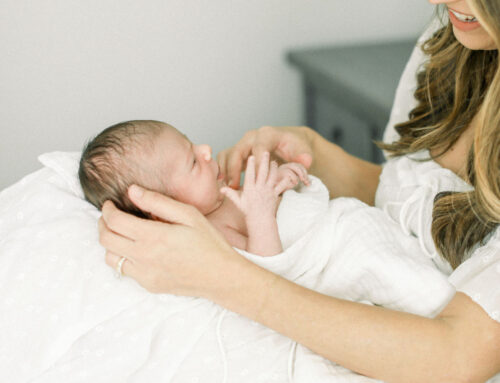The Dreaded 4 Month Sleep Regression…
We all have been warned and whether you are a first time parent or a seasoned veteran we all know that around 3-5 months there is a definite change in your baby’s sleep. The good news is it does not last forever, there are ways to manage through it and even though you may feel like you have a newborn again- your baby is old enough to not only learn and practice independent sleep, they are also capable of self regulating and putting themselves to sleep and back to sleep without needing mom or dad.
What does it look like?
I like to also refer to regressions as “sleep interruptions”- changes that are going on in your baby’s tiny body that are interfering or interrupting sleep. It doesn’t mean your baby is incapable of sleeping, it doesn’t even mean that they have forgotten how to sleep, it just means they are waking more often when they use to be sleeping.
Examples:
- Waking between the hours of 4-6 am laughing or talking to themselves, and eventually crying or fussing once they have been up too long.
- Waking early from naps, moving around a lot or protesting when you know they are still tired.
- Waking frequently throughout the night not out of hunger but seemingly wide awake or alert.
- Rolling around and grabbing for things while in their crib.
- Yelling like a pterodactyl and entertaining themselves.
- Much more needy and/or attached to mom/dad.
- Fussier than normal.
- Easily distracted during meals or during snuggling sessions.
Why is it happening?
The good news is there is SO much going on during this time. Their brains are growing and making so many new connections. They are learning new skills both cognitively and physically. They are transitioning to sleep that looks more like adult sleep and further away from newborn sleep where they were able to drift into deep sleep cycles more easily. They are making new associations. They are learning to laugh and giggle. They are taking more interest in what is going on around them. The list goes on and while all these things are wonderful and good developments for your baby, it also can cause them to get overstimulated or overtired which then exacerbates this sleep regression.
What can do I do?
There is no way to “fix” the sleep regression but there are ways to have some what of a “game plan” to get through it. I always tell my client’s “This is the time where baby’s are smart enough to really start to make associations so it’s the perfect time to instill good habits, it’s also unfortunately the time where bad habits can be made rather quickly. So choose wisely :)”
Here are some things to help make it easier for everyone.
- Put your baby down awake for nap and for bedtime. When babies learn independent sleep at this age they are able to work through future regressions and this current one much more easily on their own
- Make the sleep environment ideal: safe crib, not a lot of stimulation, pitch black, loud sound machine and temperature between 68-72 degrees.
- Put your baby in the same place to nap every day.
- Make sure your baby is eating full meals during the day- often times when they are distracted them don’t eat enough and then end up waking in the middle of the night to make up the calories.
- Keep with a bedtime routine that is sustainable. You want your baby to really know what to expect and to form comforting and calming associations before bedtime.
- Don’t engage too much if they are just talking to themselves. They are just practicing their new skills the less attention you give them (referring to the middle of the night- during the day give them lots of attention :)) the faster they work through them.
Again these are just suggestions and some will work better than others but more than anything I hope a couple of them can help! I know that this can be a difficult and exhausting time and I am here to help walk families through this time as painlessly as possibly while still implementing consistent routines that help with sleep habits they will carry with them through childhood. And remember- these regressions are all signs of good things happening in your baby’s body and we want to be aware of that while also helping them get the sleep they need for their growing brains and bodies.



